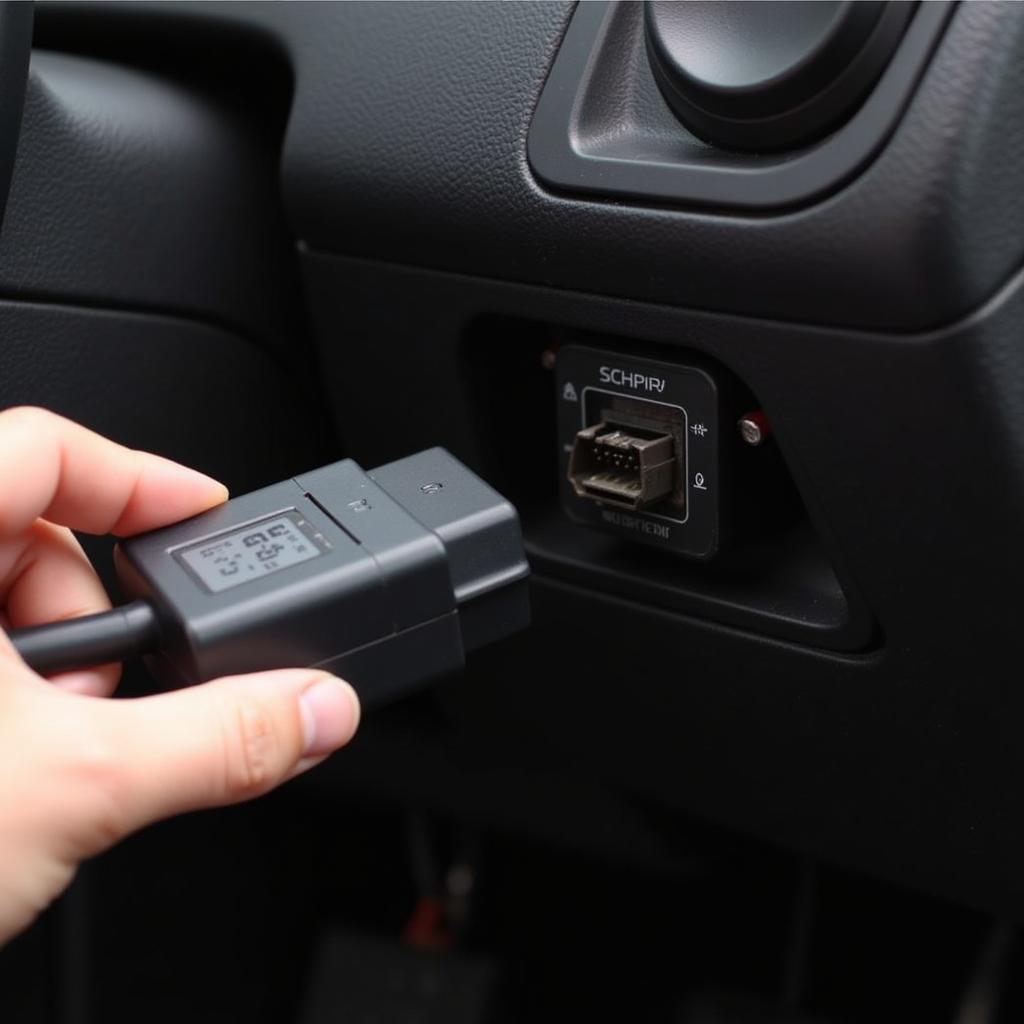Car Road Test Diagnostic Tools are essential for identifying and resolving vehicle issues, ensuring optimal performance and safety. Whether you’re a professional mechanic or a DIY enthusiast, understanding how to effectively use these tools can save you time, money, and potential headaches down the road. From understanding basic functionalities to advanced diagnostics, this guide will delve into everything you need to know about car road test diagnostic tools. After reading through this guide, you will have an understanding of these tools and be well-equipped to tackle your vehicle’s diagnostic needs.
Why are Car Road Test Diagnostic Tools Important?
Traditional diagnostic methods often involve static tests in a garage. However, certain issues only manifest themselves under real-world driving conditions. Car road test diagnostic tools allow mechanics and car enthusiasts to monitor vehicle performance in real-time during actual driving scenarios. This dynamic approach offers a more accurate and comprehensive understanding of the vehicle’s health. Think of it like a doctor performing a stress test on a patient – it provides insights that a standard checkup might miss.
These tools are crucial for pinpointing intermittent problems, those frustrating issues that seem to disappear when the car is in the shop. They’re also invaluable for diagnosing problems related to specific driving conditions, such as acceleration hesitation or unusual noises at certain speeds. Imagine trying to diagnose a subtle vibration that only occurs at highway speeds without a car road test diagnostic tool – it would be like searching for a needle in a haystack.
Choosing the Right Car Road Test Diagnostic Tool
Selecting the right car road test diagnostic tool depends on your needs and technical expertise. Basic code readers offer a starting point for retrieving and clearing diagnostic trouble codes (DTCs). More advanced scan tools provide live data streaming, allowing users to monitor various parameters such as engine RPM, coolant temperature, and oxygen sensor readings in real-time. For professional mechanics, high-end diagnostic tools offer functionalities like bi-directional control, enabling them to activate various components like fuel injectors or solenoids for testing purposes.
If you’re looking for a convenient way to search for motability cars, check out our motability car search tool. It’s a valuable resource for finding the perfect vehicle to suit your needs.
How to Use a Car Road Test Diagnostic Tool
Using a car road test diagnostic tool effectively involves a few key steps. First, connect the tool to the vehicle’s OBD-II port, typically located under the dashboard on the driver’s side. Once connected, turn the ignition to the “on” position without starting the engine. The tool will power on and establish communication with the vehicle’s onboard computer. Then, you can select the desired function, such as reading DTCs or viewing live data.
 Connecting Diagnostic Tool to OBD-II Port
Connecting Diagnostic Tool to OBD-II Port
For a comprehensive car tool kit, explore our website to equip yourself with everything you need for automotive maintenance and repairs.
During the road test, observe the tool’s readings and correlate them with the vehicle’s behavior. For instance, if you experience hesitation during acceleration, monitor the throttle position sensor, mass airflow sensor, and fuel pressure readings to pinpoint the potential cause. Don’t forget about car deep cleaning tools to keep your car spotless inside and out. Maintaining a clean car can enhance your driving experience and protect your investment.
Interpreting the Results
Interpreting the data obtained from a car road test diagnostic tool requires some knowledge of automotive systems and diagnostic procedures. DTCs provide clues about potential issues, but they don’t always pinpoint the exact cause. Further investigation, including visual inspections and component testing, may be necessary. Analyzing live data requires understanding the normal operating ranges of various parameters. Significant deviations from these ranges can indicate a problem.
“Using a car road test diagnostic tool is like having a conversation with your car,” says automotive expert, Dr. Emily Carter. “It tells you what’s going on under the hood and helps you diagnose problems more effectively.” Having the right curation tools for cars can make all the difference in maintaining your vehicle and ensuring its longevity.
Conclusion
Car road test diagnostic tools are indispensable for accurate and efficient vehicle diagnostics. They empower both professionals and DIYers to identify and resolve issues that might otherwise go unnoticed during static testing. By understanding how to use these tools effectively and interpret the results, you can ensure your vehicle’s optimal performance, safety, and longevity. Utilizing a car road test diagnostic tool can save you time and money in the long run. Mastering these tools is essential for anyone serious about car maintenance and repair. Ever heard of the cyclone car tool? It’s a game-changer for certain automotive tasks.
FAQ
- What is a car road test diagnostic tool?
A car road test diagnostic tool is a device used to monitor a vehicle’s systems in real-time while driving. - How do I connect a car road test diagnostic tool?
Connect it to the OBD-II port, usually located under the dashboard. - What can I diagnose with a car road test diagnostic tool?
Issues that only occur during driving, like hesitation or unusual noises. - Are these tools only for professionals?
No, there are tools available for both DIY enthusiasts and professionals. - What if I don’t understand the data?
Further research and possibly professional assistance might be needed. - How much do these tools cost?
Prices vary depending on features and functionality. - Where can I buy a car road test diagnostic tool?
Automotive parts stores, online retailers, and specialized tool suppliers.
If you need assistance, please contact us via WhatsApp: +1(641)206-8880, Email: [email protected], or visit us at 910 Cedar Lane, Chicago, IL 60605, USA. We have a 24/7 customer support team available.

Leave a Reply